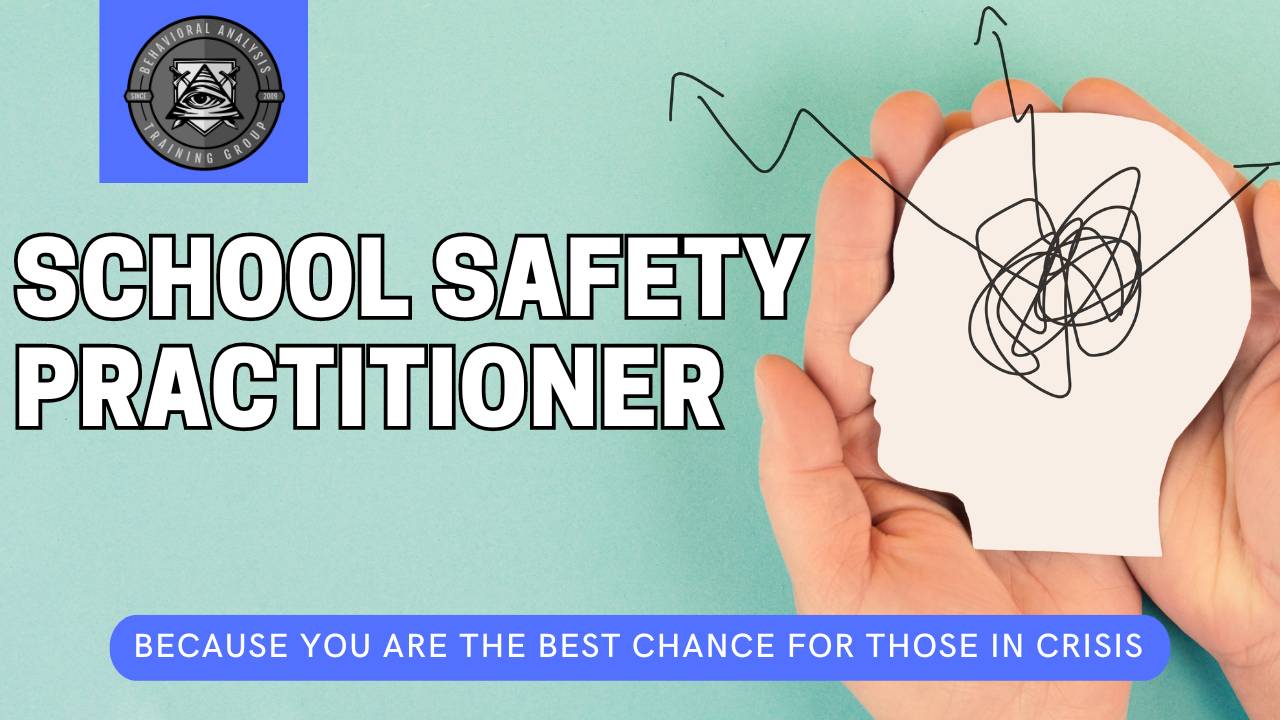Secure Your School: Learn How to Identify Students in Crisis and Prevent the Next Catastrophe.
Welcome to "Understanding Potential School Shooters and Effective Elicitation Questions in Crisis Interviews." In this course, we will explore a critically important subject—identifying and addressing potential school shooters—and focus on a specific tool that plays a vital role in this process: effective elicitation questions during crisis interviews.
The safety and well-being of students, teachers, and communities are paramount in our educational institutions. School shootings are among the most distressing and devastating events that can occur, and it is our collective responsibility to take proactive measures to prevent them.
This class is designed to provide you with a comprehensive understanding of the complex factors that contribute to potential school shooters and equip you with the skills to conduct crisis interviews using effective elicitation questions. These questions are crucial for gathering valuable information, assessing risks, and providing appropriate support to individuals who may be in crisis.
Throughout this course, we will explore the following key areas:
-
Understanding the Profiles: We will examine the psychological, social, and environmental factors that contribute to the development of potential school shooters, aiming to dispel myths and stereotypes.
-
The Importance of Early Intervention: We will emphasize the critical role that early intervention plays in preventing violence, focusing on the importance of identifying at-risk individuals before they escalate to dangerous behaviors.
-
Crisis Interview Techniques: You will learn about the art and science of conducting crisis interviews, including the nuances of building rapport, active listening, and crafting effective elicitation questions.
-
Elicitation Question Strategies: We will delve into the specific types of questions that are most effective when interviewing individuals in crisis, addressing both open-ended and closed-ended questions, as well as non-verbal communication cues.
-
Behavioral Analysis : We will explore the behaviors associated with conducting those in crisis as well as suspicious and armed behaviors.
By the end of this course, you will not only gain insight into the complexities of potential school shooters but also acquire valuable skills in crisis intervention and interviewing techniques. Our goal is to empower you to contribute to safer school environments by effectively identifying and assisting individuals who may be in distress.
We believe that knowledge, compassion, and proper training are essential tools in preventing school shootings and helping those in crisis find the support they need. Together, we can make a difference and contribute to the safety and well-being of our educational communities. Welcome to this important journey of understanding and learning.

Lead Instructor
Meet your instructor, Beau Cisco, M.S., a seasoned Law Enforcement veteran with over two decades of experience. With a Master's Degree in Forensic Psychology and a Bachelor's Degree in Social Psychology, Beau possesses a deep understanding of human behavior. His extensive study of psychology since 1995, coupled with his role as a Behavioral Analysis teacher since 2009, underscores his commitment to ensuring that law enforcement professionals are well-prepared to address the challenges they may encounter. Beau Cisco's unique combination of practical expertise and academic qualifications equips students with valuable insights into complex human behaviors, making communities safer and more secure under his guidance.
Take A Free Class on Us!!
Take a Free Class about the 25 Statements You Need To Be Aware Of today and get 20% off before this once in a lifetime opportunity expires.



